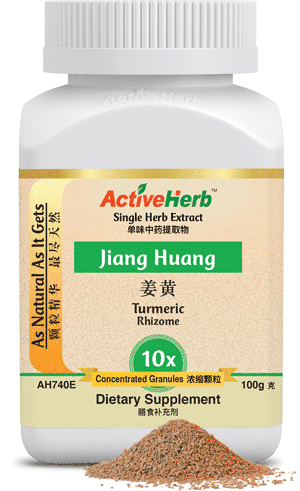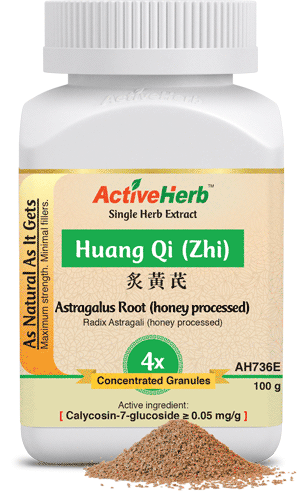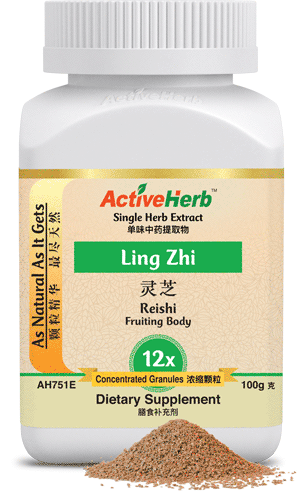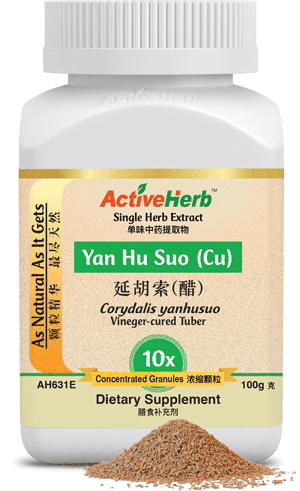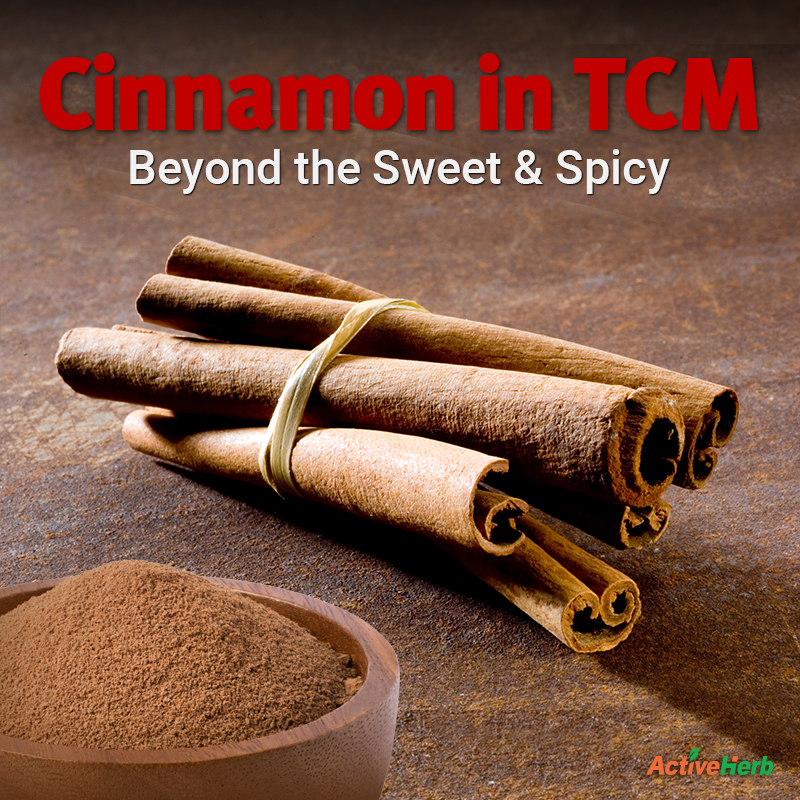Brew a Cup of Super Coffee With These All-Star Chinese Herbs

Love drinking coffee because without it there’s no way you’d be able to function?
The perks of drinking coffee can far exceed perking up from the caffeine. All it takes is a few extra seconds of time to boost your ordinary cup of Joe into a health-supporting beverage.
Ready to fill up?
All you need, besides your coffee, of course, is your favorite Chinese herbs. But not in raw form, mind you. That is, unless you want to spend hours boiling and preparing the herbs. The much easier way to get the benefit of Chinese herbs—without losing any of the active ingredients from the raw herbs—is with extract granules.
To use extract granules in your coffee, simply open the bottle, remove the provided scooper, pour one or two scoops into your coffee and stir for a few seconds.
We’ve got 6 extract granules that we think pair perfectly with coffee. You obviously don’t have to use all 6 granules to get a health boost. However, the more, the merrier for your health. (For any granules you are interested in, simply click the link to go to the product page.)
Turmeric
In traditional Chinese medicine (TCM) theory, turmeric breaks up blood stasis and moves Qi, and unblocks the Channels. Lots of people know that turmeric, which is perhaps one of the most studied natural ingredients, supports a healthy inflammatory response in the body.
In a review published in the Journal of Clinical Immunology, curcumin (diferuloylmethane), the orange-yellow main bioactive component of turmeric, has been shown for at least two decades to support the immune system.
In hip coffee shops, turmeric coffee, also called “golden coffee” has been a big health trend over the last few years. The reason why turmeric has rightfully earned a reputation as a superfood is also because it contains potent antioxidant compounds, especially curcumin.
The bitterness and earthy flavor of turmeric complements coffee’s flavor notes.
Ginger
But for some people, combining turmeric with coffee delivers an overwhelming bitterness. This is where adding ginger extract granules comes into play. Ginger, also considered a superfood in natural health, will take the edge off turmeric’s taste. In trendy coffee shops across the country, baristas add ginger powder to golden coffee.
Like turmeric, ginger is a spice that supports the inflammatory response. In TCM theory, it influences several channels: Spleen, Stomach, Kidney, Heart, Lung. Its actions, from a TCM perspective, include warming the middle burner (the heart of the digestive system) and dispersing cold. Also, ginger is beneficial for women during menstruation.
Cinnamon
Love sprinkling cinnamon on toast or waffles? Then let’s add yet another spice that supports the inflammatory response to your coffee. In TCM theory, it influences the Heart, Lung, and Bladder, and contributes to Yin-Yang balance (homeostasis) by promoting sweating, relaxing the muscles, warming and unblocking the Channels, venting Qi, and calming rebellious Qi.
Astragalus (Huang Qi)
In the west, astragalus is not nearly as popular as turmeric, ginger or cinnamon. However, it is becoming increasingly more popular because of its well-publicized immune-supporting properties.
Huang Qi (Zhi) is honey-processed astragalus. The honey provides a bit of sweetness to the coffee so make sure you don’t sweeten your coffee with too much sugar. In TCM theory, astragalus influences the Lungs and tonifies the Spleen and Qi, which may support digestive function and physical endurance.
Reishi
An even more recent health trend than turmeric/golden coffee is mushroom coffee. Yes, adding edible fungus to your coffee is a thing! And why not? After all, edible mushrooms are indeed a superfood. At the moment, mushrooms are one of the top 10 biggest health trends, with U.S. sales expected to grow by 50% over the next 3 years.
Used for centuries in TCM, reishi is among the most popular edible mushrooms among natural health enthusiasts in the States. However, you won’t likely find it in your neighborhood supermarket like you would shiitake or portobello varieties.
Buying a bottle of Reishi extract granules, which contains a 12X concentration, is the easiest and most affordable way to get the benefits of this superfood ingredient. Reishi supports respiratory function, and in TCM theory, it tonifies Qi and calms the spirit; it has an earthy, neutral flavor profile.
Corydalis (Yan Hu Suo)
If you experience Qi blockage (and you’ll know it if you feel very stiff in the morning when you wake up), adding a scoop or two of corydalis to your coffee may help. The storied Chinese herb invigorates the blood and promotes the movement of Qi, thereby helping to unblock stagnant Qi.
Corydalis may also help promote a sense of relaxation, something that may help offset the jitteriness of caffeine. The underground root (or rhizome) of the corydalis plant contains the active ingredient, tetrahydropalmatine, which has been shown to relax the muscles. Like most of the other herbs above, corydalis has a natural slightly bitter taste, which makes it a perfect superfood ingredient to add to coffee.
Other Best Herbal Extract Granules For Coffee
Most of the herbs listed above are considered as adaptogens by Western herbalists. Adaptogens, or adaptogenic herbs, help the body adapt to stress. That means that they help restore balance to the body’s myriad systems. The following other adaptogenic herbs, which have been used for centuries, can also be easily added to coffee in extract granule form:
- Ginseng: Slightly sweet and bitter; Calms the spirit, restores the pulse, tonifies the Spleen, benefits the Lungs, generates fluids.
- Eleuthero: The taste adds a slight bitterness to coffee; the herb nourishes Qi, strengthens Spleen and Kidney and calms the spirit.
- Cordyceps: Somewhere in between neutral and slightly sweet-tasting, this fungus supports the immune system and is commonly used for stamina.
- Rhodiola: Sweet and bitter, the root of rhodiola rosea nourishes Qi and invigorates the Blood.
Conclusion:
If you have a Yin deficiency (you’re always running hot and/or you’re hot-tempered), coffee might not be the best drink for you. However, if you love coffee, why not spice it up to support your health by adding extract granules?
Whether or not you want to minimize the health benefits by adding sugar, well, that’s up to you.
Enjoy!
Try adding extract granules to your coffee and tell us what you think. Leave a comment or question below.
Related Reading From The ActiveHerb Blog:
Is Coffee Healthy? The Stimulating Answer According to TCM
The Best Adaptogens For Stress & Fatigue That Are Also Popular Chinese Herbs
Mushroom magic: why the latest health fad might be on to something



